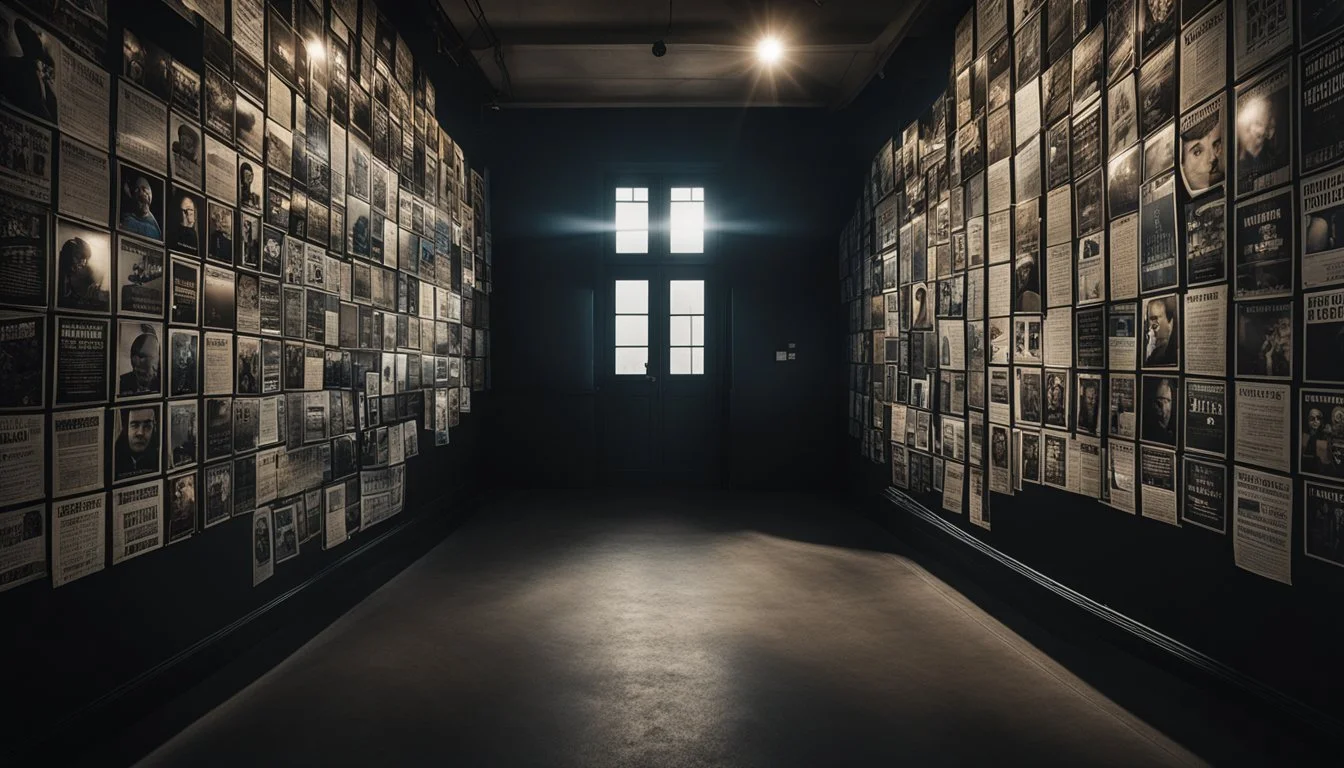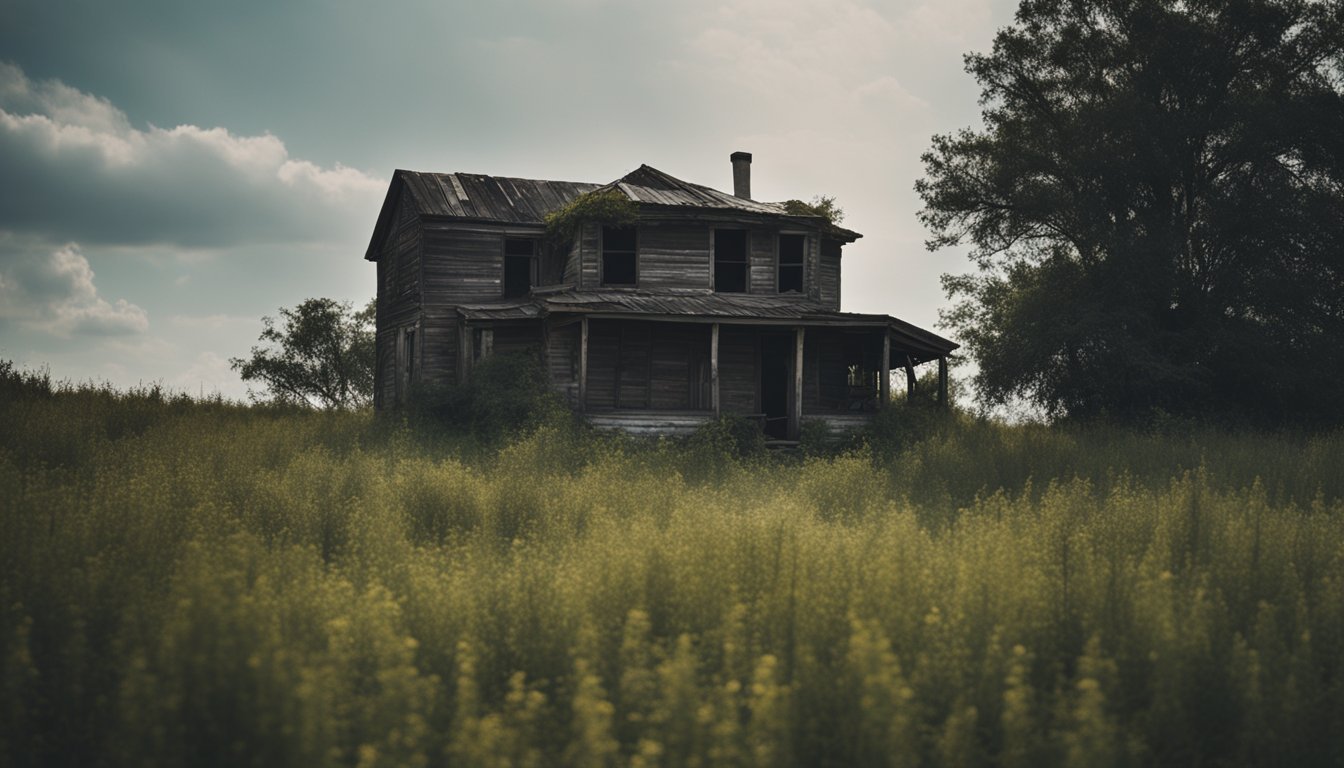7 True Crime Documentaries You Must See from Georgia
Uncover the Darkest Stories
True crime documentaries have captivated audiences with their intense and often heart-wrenching storytelling. These films delve into real-life cases, providing a detailed look at some of the most notorious crimes. Georgia, with its rich and sometimes dark history, is home to several compelling true crime stories that have been adapted into must-see documentaries.
These documentaries shed light on some of the most harrowing and intriguing cases from the Peach State, making them essential viewing for true crime enthusiasts. From infamous serial killers to unsettling neighborhood mysteries, each film offers a unique perspective on criminal investigations and the human stories behind them.
1) The Innocent Man (2018)
"The Innocent Man" is a true crime documentary series based on John Grisham's 2006 non-fiction book "The Innocent Man: Murder and Injustice in a Small Town."
It examines two murder cases that took place in Ada, Oklahoma, in the 1980s.
The series highlights the wrongful convictions of Ron Williamson and Dennis Fritz.
Over six episodes, it explores the flaws in the justice system that led to these convictions. It also looks into the lives affected by these injustices.
The documentary raises important questions about false confessions, prosecutorial misconduct, and the impact of such errors on communities.
For more information, visit Wikipedia.
2) The Staircase (2022)
HBO Max's "The Staircase" is an American biographical crime drama miniseries.
Based on the 2004 true crime docuseries of the same name, it dives into the case of Michael Peterson, a writer accused of murdering his wife, Kathleen Peterson.
Kathleen was found dead at the bottom of a staircase in their Durham, North Carolina home. The series stars Colin Firth as Michael Peterson and Toni Collette as Kathleen Peterson.
Filming took place in Georgia, utilizing its small business vendors, stage space, and unique sites. The production ran from June to November 2021 in Atlanta.
Cinematography was handled by Lyle Vincent and Michael Svitak, notable for their previous works in the industry.
"The Staircase" expertly combines true crime with a dramatic narrative, offering a meticulous portrayal of the complex legal proceedings and media frenzy surrounding the case.
For further details, visit The Staircase on Wikipedia.
3) Mindhunter (2017)
Mindhunter explores the real-life FBI investigations into the Atlanta Child Murders. These tragic events occurred between 1979 and 1981, during which at least 28 African American children, teenagers, and adults were abducted and killed.
The show portrays Wayne Williams as the prime suspect, though he was only charged for the murders of two adults. His guilt remains a contentious topic.
Directed by David Fincher, the series delves deep into FBI profiling techniques. It provides insight into the early days of criminal psychology and behavioral science at the FBI.
Mindhunter is renowned for its meticulous attention to historical detail. The show effectively illustrates the intersection of race, crime, and justice in Atlanta during the late 1970s and early 1980s.
For more information, visit the IMDB page for Mindhunter.
4) Making a Murderer (2015)
"Making a Murderer" is a landmark true crime documentary series that first premiered on Netflix in 2015. It chronicles the story of Steven Avery, a man from Wisconsin who was wrongfully convicted of sexual assault and attempted murder in 1985.
After serving 18 years in prison, Avery was exonerated in 2003 due to DNA evidence. The series takes a dramatic turn when Avery is accused again, this time of the murder of Teresa Halbach in 2005. This raises questions about possible corruption within the local police force.
The documentary is known for its extensive use of archival footage, court documents, and interviews, providing a comprehensive look at the legal proceedings and controversies surrounding Avery's case. It has sparked widespread debate about the justice system and the potential for miscarriages of justice.
Throughout its duration, "Making a Murderer" meticulously details the complexities and inconsistencies of Avery’s legal battles, bringing to light the challenges faced by those who might be wrongfully convicted. This compelling series remains a must-watch for true crime enthusiasts.
For more information, visit IMDB.
5) Don't F**k With Cats (2019)
"Don't F**k With Cats" is a true crime docuseries released on Netflix in 2019.
The series begins with a disturbing video posted online of a man killing kittens, prompting internet users worldwide to identify and find the perpetrator.
This crowd-sourced investigation leads to more horrifying discoveries involving Luka Magnotta, a Canadian pornographic actor.
The series is directed by Mark Lewis and features interviews with amateur sleuths and law enforcement officers involved in the case.
It highlights the dangers of internet vigilantism while showcasing the determination of ordinary people to bring a criminal to justice.
Viewers should be aware that the content is unsettling and not suitable for those sensitive to graphic violence.
6) Wild Wild Country (2018)
Wild Wild Country is a documentary that delves into the story of the Rajneeshpuram community in Oregon. This community was led by the Indian guru Bhagwan Shree Rajneesh, also known as Osho, and his secretary Ma Anand Sheela.
The series explores the clash between the Rajneesh followers and the local Oregon residents. It provides a gripping look at the legal battles, immigration fraud, and bioterrorism plots related to the commune.
Directed by Chapman Way and Maclain Way, this six-part series features interviews with former members, law enforcement, and local townspeople. The documentary is acclaimed for its detailed portrayal of this intense and strange chapter in American history.
Critics have praised Wild Wild Country for its thorough investigation and gripping narrative. The series has gained a strong following and is noted for its cinematic style and deep exploration of the events.
For more information, visit IMDb.
7) Evil Genius (2018)
"Evil Genius: The True Story of America's Most Diabolical Bank Heist" explores the infamous 2003 "pizza bomber" case. The documentary series investigates the death of Brian Wells, who was forced to commit a bank robbery while wearing a collar bomb. The case remains notorious due to its bizarre and complex nature.
This four-part series, released on Netflix, delves into the intricate plot involving a group of conspirators. The FBI's investigation revealed a tangled web of relationships and motives, leading to numerous shocking revelations. The series features interviews with law enforcement and those connected to the case, offering a detailed view of this true crime.
Produced by Trey Borzillieri and Barbara Schroeder, the documentary has been praised for its thorough research and compelling storytelling. It provides viewers with an in-depth look at one of America's strangest and most sinister criminal plots.
For more information on "Evil Genius," visit Wikipedia.
Historical Context of True Crime in Georgia
True crime in Georgia has a complex and fascinating history, notably marked by significant cases and the evolution of media coverage. These elements have played a crucial role in shaping public perception and interest in the genre.
Notable Cases That Shaped the Genre
Georgia has been the scene of several high-profile crime cases that have had a lasting impact on both the state and the true crime genre. The Atlanta Child Murders between 1979 and 1981 involved the tragic deaths of at least 30 Black children and young adults. This case gripped the nation and led to a five-part documentary titled "Atlanta's Missing and Murdered: The Lost Children". The prosecution of Wayne Williams, the man believed to be responsible, remains a controversial topic.
Another significant case is the murder of Meredith Emerson while hiking in the Blood Mountain Wilderness in 2008. This brutal crime was explored in the Hulu docuseries "Wild Crime: Blood Mountain". These cases, among others, underscore the severe and often chilling nature of true crime stories in Georgia, leaving a lasting imprint on the collective memory.
Evolution of True Crime Media
The portrayal of true crime in Georgia has evolved substantially over the years. Originally covered primarily by traditional newspapers and TV news, these stories have now found a wider audience through various mediums. Podcasts like Atlanta Monster and True Crime Garage have brought detailed discussions of these crimes to listeners around the world.
On the visual front, platforms like Hulu and HBO have produced compelling documentaries that delve into Georgia's crime history. For instance, the Atlanta Child Murders case was meticulously documented in "Atlanta's Missing and Murdered: The Lost Children". Such productions have played a vital role in not only informing but also igniting discussions and debates around these cases, highlighting the ever-growing public fascination with true crime.
Impact of True Crime Documentaries
True crime documentaries often serve to shed light on lesser-known cases, sparking public interest and sometimes even aiding in bringing justice. They also shape how the audience perceives the justice system and media.
Raising Awareness and Influencing Investigations
True crime documentaries often bring attention to cases that may have otherwise gone unnoticed. Documentaries like Making a Murderer or The Jinx revive interest in old cases, often leading to reopened investigations.
Examples:
Community Involvement: Documentaries can lead to public campaigns for justice.
Legal Repercussions: In some cases, evidence highlighted leads to new trials or convictions.
These films often spotlight procedural flaws, helping to improve investigative techniques.
Public Perception and Media Influence
The portrayal of crime and justice in documentaries can significantly shape public opinion. People often develop a deeper understanding of systemic issues through these films.
Key Points:
Victim Empathy: Viewers may become more empathetic towards victims.
Skepticism of Authorities: Increased scrutiny of law enforcement and legal proceedings.
By presenting comprehensive stories, these documentaries influence the audience's view of the criminal justice system, often driving societal demand for reform.








